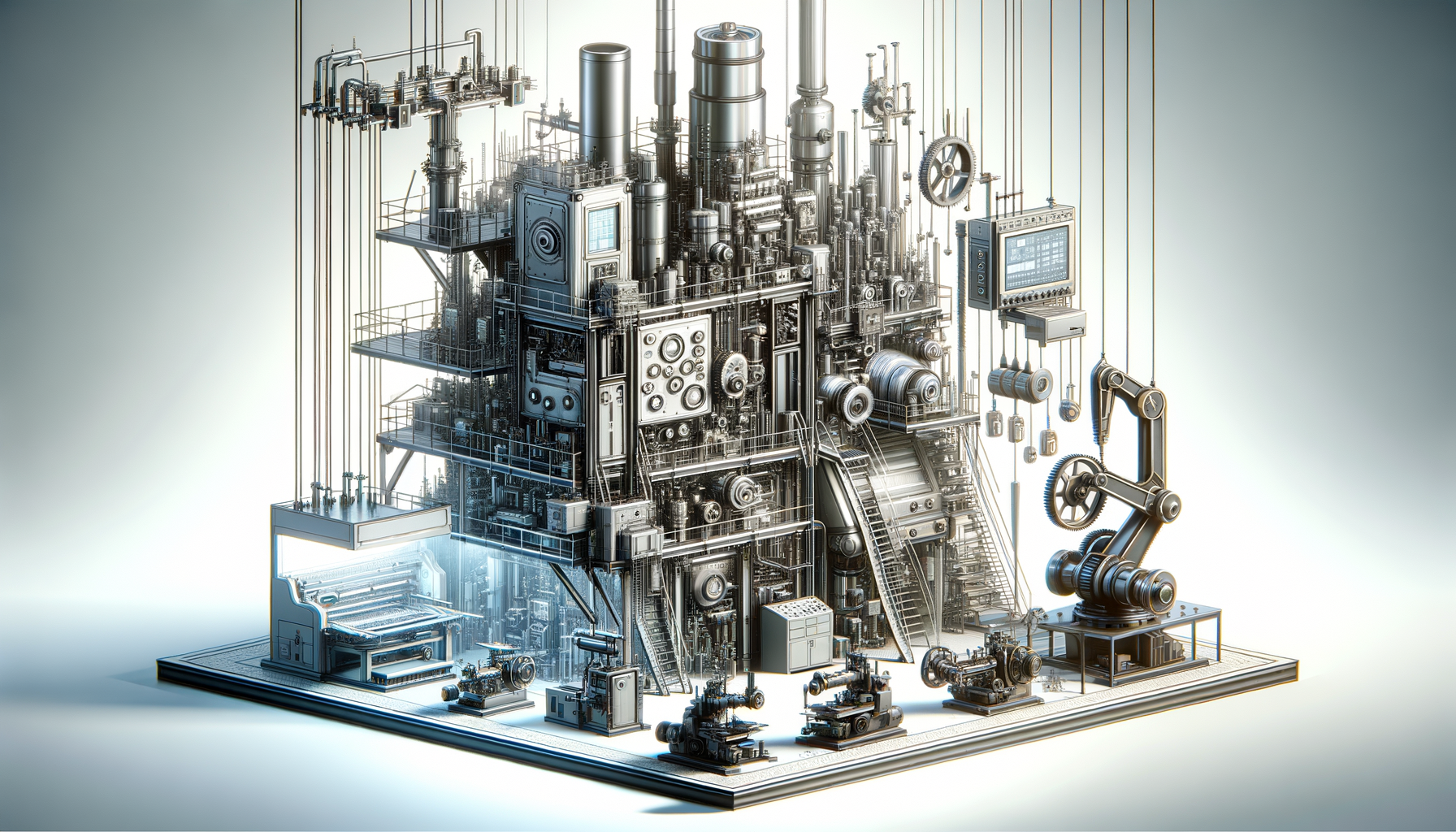Introduction to Industrial Machines
In today’s fast-paced world, industrial machines play a crucial role in enhancing productivity and efficiency. These machines are designed to perform tasks that would otherwise be time-consuming and labor-intensive, making them indispensable in both home and business environments. From manufacturing to packaging, industrial machines streamline operations, reduce human error, and ultimately save time and money.
Industrial machines come in various forms, each tailored to specific applications. Whether it’s a CNC machine used in metalworking or a 3D printer for creating prototypes, these tools are engineered to meet the demands of modern industry. By automating repetitive tasks, industrial machines allow human workers to focus on more complex and creative aspects of their jobs, thereby boosting overall productivity.
In this article, we will explore the different types of industrial machines, their applications, and how they can be leveraged to optimize workflows in both home and business settings.
Types of Industrial Machines
Industrial machines are diverse, catering to a wide range of sectors and applications. Some of the most common types include:
- CNC Machines: Computer Numerical Control (CNC) machines are used for precision cutting, drilling, and milling. They are essential in industries such as automotive, aerospace, and electronics.
- 3D Printers: These machines create three-dimensional objects by layering material. They are used in prototyping, medical applications, and even in the fashion industry.
- Packaging Machines: These machines automate the packaging process, ensuring consistency and efficiency. They are widely used in food and beverage, pharmaceuticals, and consumer goods.
- Robotic Arms: Used in assembly lines, robotic arms perform tasks such as welding, painting, and material handling with precision and speed.
Each type of machine offers unique benefits, and choosing the right one depends on the specific needs of the business or home application.
Applications in Business Settings
In business environments, industrial machines are pivotal in streamlining operations and improving output. Manufacturing sectors, in particular, benefit greatly from the use of these machines. For example, CNC machines enable manufacturers to produce high-quality components with minimal waste, while robotic arms increase the speed and accuracy of assembly lines.
In the food and beverage industry, packaging machines ensure products are sealed and labeled efficiently, reducing the risk of contamination and extending shelf life. Similarly, in the pharmaceutical industry, these machines help maintain stringent hygiene standards while enhancing production rates.
Moreover, industrial machines facilitate innovation by allowing businesses to experiment with new designs and materials. 3D printers, for instance, enable rapid prototyping, allowing companies to bring new products to market faster than ever before.
Applications in Home Settings
While industrial machines are often associated with large-scale operations, they also have applications in home settings. Hobbyists and small business owners can benefit from machines like 3D printers and CNC routers, which allow for the creation of custom parts and products.
For instance, a home-based jewelry maker can use a CNC machine to craft intricate designs with precision, while a hobbyist can use a 3D printer to create unique home décor items. These machines empower individuals to turn their creative ideas into tangible products, fostering innovation and entrepreneurship.
Additionally, the accessibility of industrial machines in home settings has led to the rise of the “maker movement,” where individuals use technology to create and innovate from the comfort of their homes.
Conclusion: Embracing Industrial Machines
Industrial machines are transforming the way we work, both in business and at home. By automating repetitive tasks and enhancing precision, these machines increase productivity and open up new possibilities for innovation. Whether in a large manufacturing plant or a small home workshop, industrial machines offer the tools needed to optimize workflows and achieve exceptional results.
As technology continues to advance, the role of industrial machines will only grow, making them an essential part of modern life. Embracing these machines not only boosts productivity but also empowers individuals and businesses to push the boundaries of what is possible.




Leave a Reply